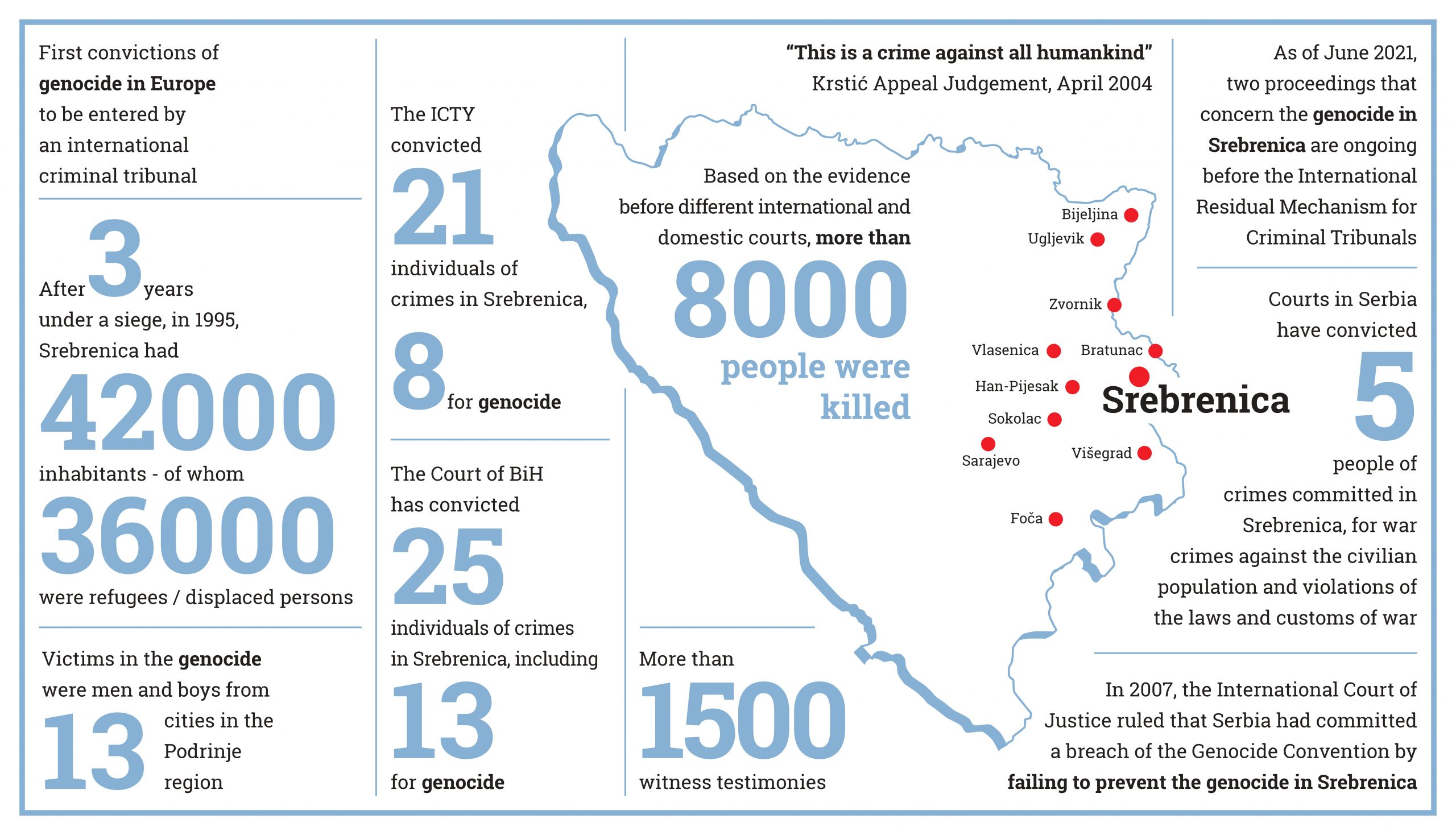“After Srebrenica fell to besieging Serbian forces in July 1995, a truly terrible massacre of the Muslim population appears to have taken place. The evidence tendered by the Prosecutor describes scenes of unimaginable savagery: thousands of men executed and buried in mass graves, hundreds of men buried alive, men and women mutilated and slaughtered, children killed before their mothers’ eyes, a grandfather forced to eat the liver of his own grandson. These are truly scenes from hell, written on the darkest pages of human history.”
In 2004, a working group which was a part of the Commission for investigating crimes in and around Srebrenica that occurred from 10 to 19 July 1995, proved that 21,150 people directly or indirectly took part in the preparations and fulfillment of the Srebrenica genocide. The Commission for investigating these crimes in and around Srebrenica was established by the Government of the Republika Srpska.
In 2007, the International Court of Justice found that Serbia had committed a breach of the Convention on the Prevention and Punishment of the Crime of Genocide by failing to prevent the genocide from occurring, for not cooperating with the ICTY in punishing the perpetrators of the genocide, and for violating its obligation to comply with the provisional measures ordered by the Court.
The International Tribunal for Former Yugoslavia (ICTY), Court of Bosnia and Herzegovina, and Serbian courts have sentenced more than fifty people to more than 700 years in prison for crimes committed in Srebrenica. Of the twenty one judgments the ICTY made about crimes committed in Srebrenica, eight contained guilty verdicts for the crime of genocide. Court of Bosnia and Herzegovina passed 25 judgements for crimes committed in Srebrenica, and thirteen of those judgements included the crime of genocide. And in the Republic of Serbia, five judgements relating to Srebrenica have been delivered, including for war crimes against the civilian population and violations of the laws and customs of war.

© CGMAP.ORG 2020
Post-Conflict Research Center (PCRC)
Pruščakova 21, 71000 Sarajevo, Bosnia and Herzegovina
Phone: +387 (0)61 274 997
General inquiries:
[email protected]
For information about becoming a member or taking part in our activities:
[email protected]